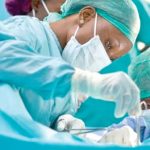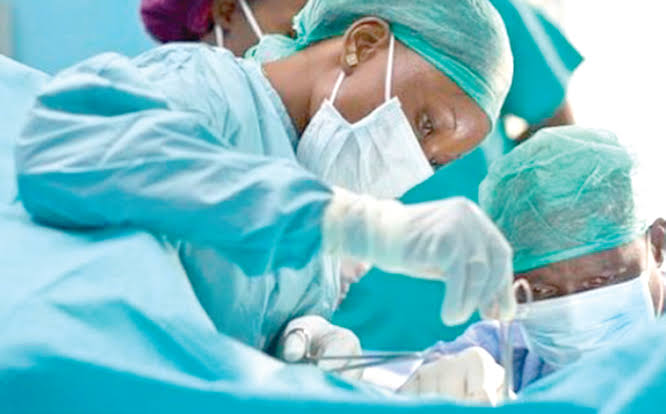Resident doctors salary structure in Nigeria – how much are they paid?
A resident doctor is a medical graduate working and living within the premises of a teaching hospital or federal medical centres. He handles emergencies in the hospitals before the arrival of the consultant.
Resident doctors, together with the house officers, are the life wire of any teaching hospital or federal medical centre. Residency is a medical or surgical training programme that you must undergo to become a certified specialist (consultant). Depending on the specialty, residency takes between 5 – 6 years. The dream of every resident/doctor is to become a consultant.
Prerequisite for becoming a resident doctor
As earlier mentioned, residency is a training programme for medical doctors or dentists to become consultants. But first you have to be a medical graduate from any one our accredited universities in Nigeria or equivalent medical schools abroad.
Secondly, you must have done your mandatory one year internship/housemanship and National Youth Service Corps (NYSC) or have an exemption letter. Finally, you must pass the compulsory National or West Africa primaries (more like entrance exams) before you will be considered eligible for training in any teaching hospital or federal medical centre.
Types of resident doctors
1. Based on specialty: There is the medical residents, surgical residents, radiology residents, family medicine residents, Obstetrics and Gynaecolgy residents, dental, community health resident doctors and pediatric residents. It could be more but these are the common training programmes in Nigeria.
2. Based on seniority: Here we have the junior resident (junior reg or simply reg) and the senior resident (SR). The senior residents receive higher salaries that the junior reg but have the same salary structure. Please note that if a junior reg passes a series of exams called part 1 during training, she/he becomes a Senior Reg while when the SR passes part 2, she/he becomes a consultant (specialist). Their pay rises as they climb the civil service ladder.
It is now time to take about how much a resident doctor earns in Nigeria
Salary Structure of resident doctors in Nigeria
Resident doctors use the CONMESS salary structure. Entry level for residency is registrar 2 who gets about #315,000 naira after tax (take home) with the addition of the new hazard allowance. He/she becomes registrar 1, who now takes home about #330,000 after tax. After 36 months (3 years) and passing Part 1, a junior registrar is elevated to a Senior registrar and Senior Registrar earns between #430,000 – #500,000 after tax deductions. These salaries stated here may be more and this depends on the character of the Chief Medical Director (of the particular hospital) who are now notorious for unconstitutional and unexplained deductions of doctors monthly wages.
Please be informed that deductions from pension and gratuity and housing mortgage which is now a norm in many teaching hospitals and Federal Medical Centres (constitutional too) will further reduce the take home pay for residents.
Apart from their basic monthly salary, resident doctors have access (supposedly) to other allowances and bonuses which have been highlighted below:
Call duty allowance: This is an allowance paid to medical and dental doctors in federal and state hospitals and clinics. It is earned when the doctors does a call based on the hospital’s call duty roster.
Non-clinical duty allowance: This is paid to doctors that render health-related services at the Federal Ministry of Health or other related Federal Health institutions.
Clinical Duty Allowance: This is an extra allowance which is paid to consultants/senior registrars that are also employed as academic staff in the university in addtion to the clinical service they render at the teaching hospital
Teaching Allowance: This allowance is paid to medical and dental officers in Federal Government parastatals that are engaged in teaching medical students, house officers medical doctors in the lower cadre and other health professionals (student nurses and paramedics) in teaching hospitals and federal medical centres.
Hazard allowance: This is payable to all medical and dental officers due to the risk associated with the profession. Painfully, it used to be a meagre #5,000 naira…the Buhari administration has now increased it to 40,000 naira and it has been implemented as doctors and other health workers have started receiving alerts of the new implemented hazard allowance of #40,000
Rural posting allowance: This is for some doctors who sacrifice the comfort of the urban cities to work in rural communities. There’s also an allowance that comes with this duty that is paid by the Federal Government. Because of this, rural doctors somewhat earn more than city doctors. Unfortunately, CMDs always fail to pay this allowance.
Skipping allowance: An allowance that have caused protracted litigations and industrial action between the federal government and national association of resident doctors (NARD). Finally approved in 2016, money is released yearly to clear the backlog, payment have started in earnest, but some hospitals are still defaulting
Be aware that most residents take up side jobs in private hospitals in order to augment their salaries. It is now a norm.
PS: The increase in the minimum wage from #18,000 to #33,000 which has been fully implemented by the federal government as well as some state governments will further increase the salary of resident doctors howbeit, a 6 percent increase.

READ ALSO: Doctors salary in 55 African countries.

























Your writing is very true. All my senior colleagues who have found place for residency told me their salary is from 300k above. Some useless website are still keeping figures that are not in line with the current minimum wage and salary. They write 150-195k for residency, in their dream
You tried in your analysis ..Not perfect .. but still better than many other sites and blogs that make quotations without thorough researching/updating..
Very good analysis. But not perfect now. Little has changed